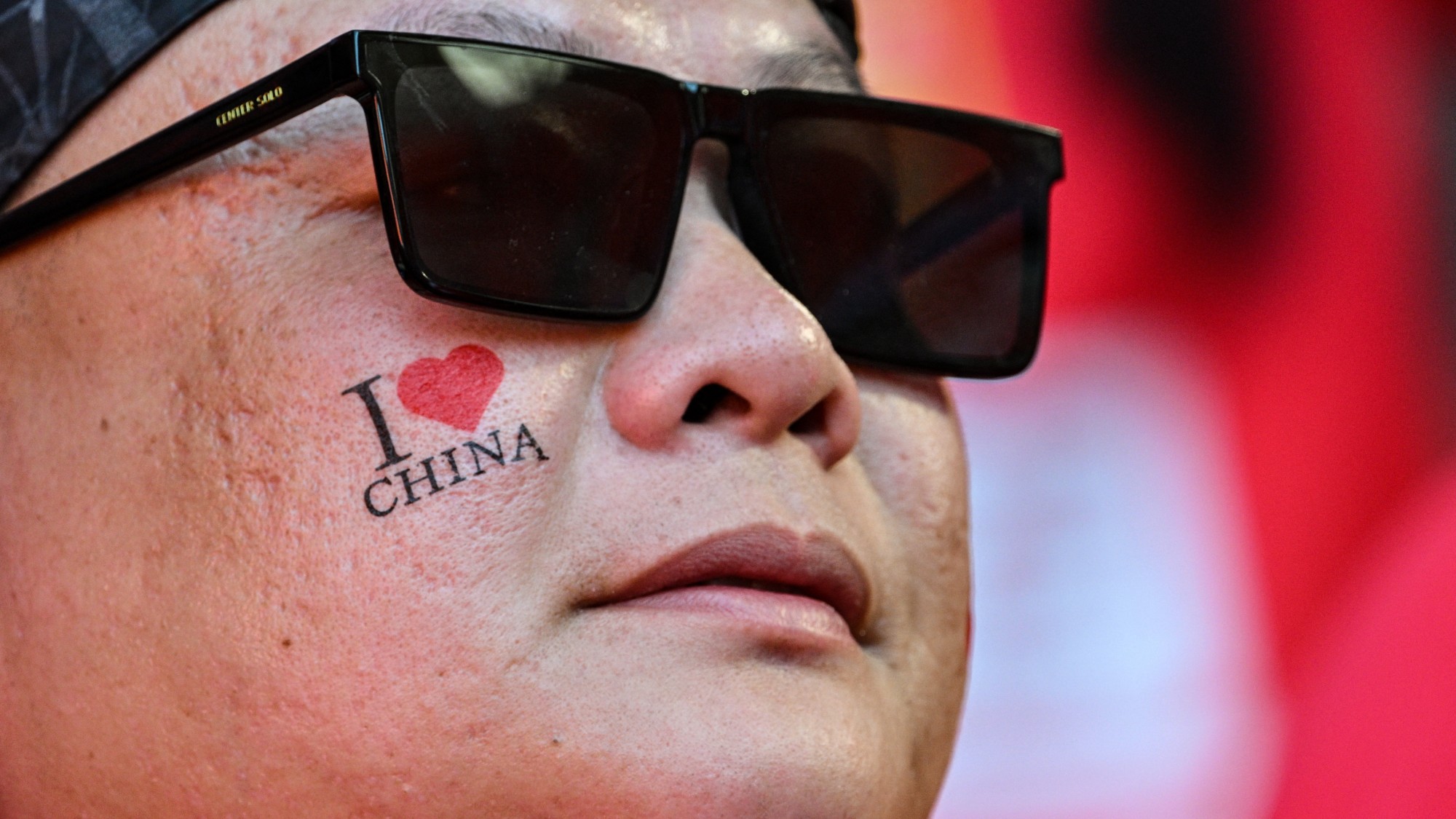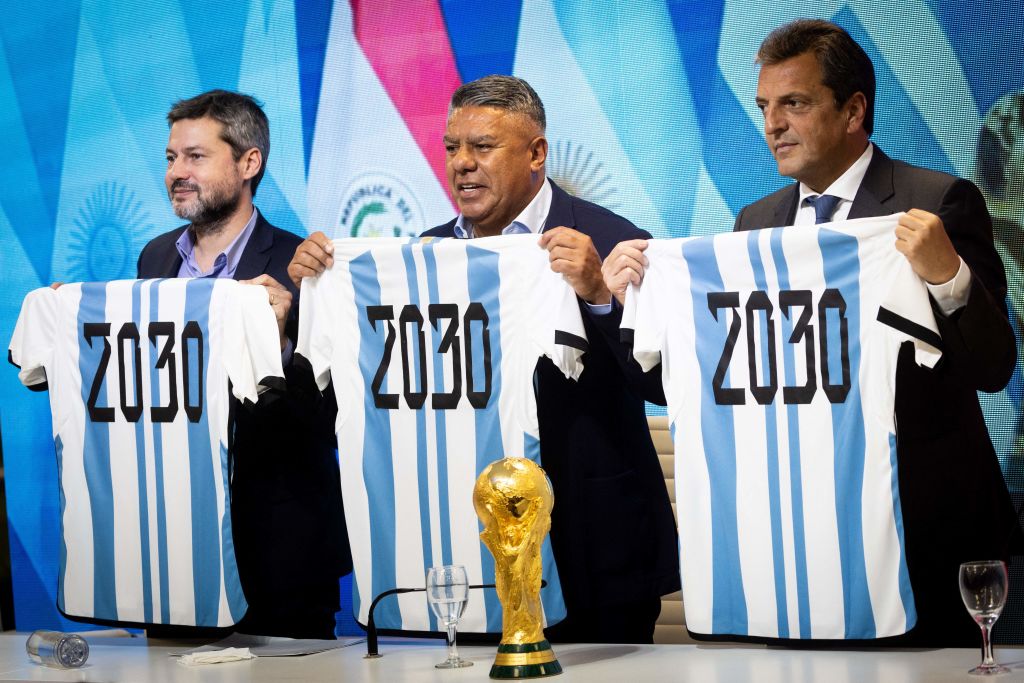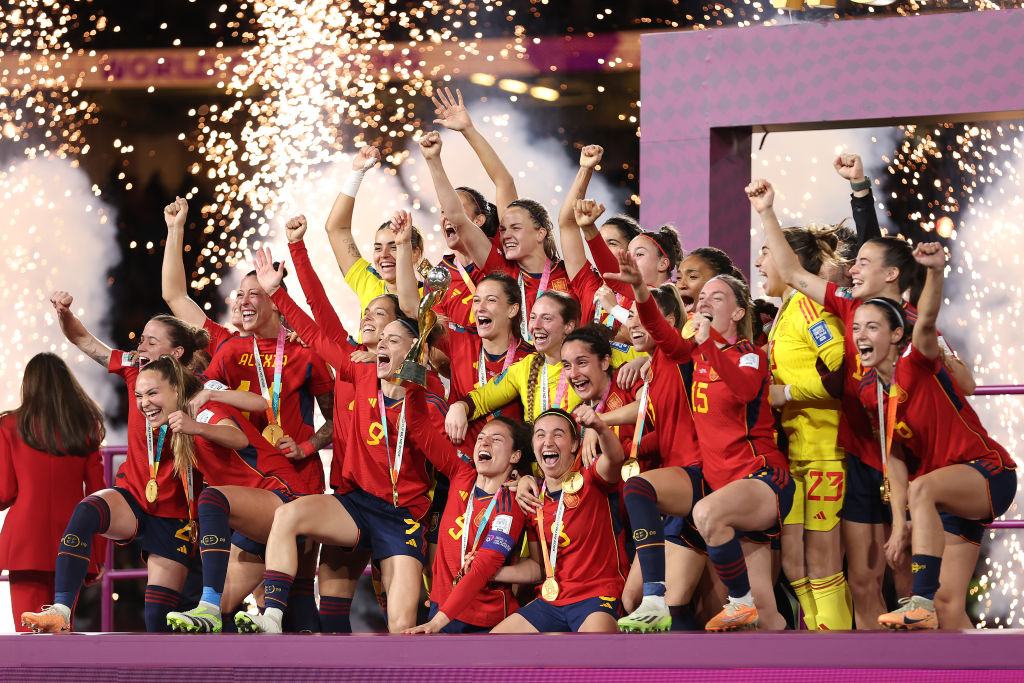The case for — and against — boycotting the 2022 World Cup
The sharpest opinions on the debate from around the web


A free daily email with the biggest news stories of the day – and the best features from TheWeek.com
You are now subscribed
Your newsletter sign-up was successful
Qatar's hosting of the 2022 FIFA World Cup is highly controversial: The nation has been accused of human rights violations related to its use of migrant labor to erect the tournament's infrastructure. Qatar hired more than 30,000 workers, mainly from Bangladesh, India, Nepal, and the Philippines, to build its World Cup stadiums. It's estimated that about 6,500 laborers died in the decade since Qatar won its bid to host the sporting event, per The Guardian. Same-sex marriage is also illegal in Qatar. This has prompted many to shun the World Cup in solidarity with the victims and the oppressed. But others argue the whole situation is being overblown and the criticisms are misplaced. Who's right?
The boycotts are purely performative
The pro-boycott narrative is nothing more than "liberal storytelling," Fawaz Rob, CEO of Bangla Bari, an architecture firm in Bangladesh, argues in the Daily Star. If Western countries really wanted to take a stand against human rights abuses, they could take major collective action, like issuing sanctions or pulling out of the World Cup entirely. Yet Europe and America still do business with human rights violators, betraying their own hypocrisy in the process. So now "average citizens think boycotting the World Cup would solve the labor problem," when really their actions will have little effect. On the flip side, the World Cup brings the world together. It's "a chance to celebrate humanity. Why should we boycott it?"
They're also prejudiced
The issue of migrant labor in Qatar is concerning and deserves to be scrutinized, but "some of this discourse plays on Orientalist tropes that treat Qatar and other Gulf countries as exceptional," when really they are just one "locus in a global flow of capital and labor," writes historian Abdullah Al-Arian, author of Football in the Middle East: State, Society and the Beautiful Game, for The New York Times. Let's not forget the colonial roots of the United Arab Emirates' "kafala" sponsorship system, which gives employers draconian control over migrant workers. "One would hope that future World Cup hosts — and their labor practices — are given the same kind of scrutiny."
The Week
Escape your echo chamber. Get the facts behind the news, plus analysis from multiple perspectives.

Sign up for The Week's Free Newsletters
From our morning news briefing to a weekly Good News Newsletter, get the best of The Week delivered directly to your inbox.
From our morning news briefing to a weekly Good News Newsletter, get the best of The Week delivered directly to your inbox.
Let's not overlook Qatar's improvements
"Mega sporting events" like the World Cup can pave the way for social change, argues Danyel Reiche, an associate professor at Georgetown University Qatar's Center for International and Religious Studies. Qatar has already made some recent labor reforms, for example introducing a minimum wage. So when compared not to Western nations but to its regional neighbors, "Qatar comes out ahead" as a reformer on employee rights. We want to encourage these changes rather than "disparage" them, Reiche says, and boycotting the World Cup can "actually serve to undermine Qatar's ongoing reform process in the labor market."
Boycott, boycott, boycott!
Qatar's hosting is a clear example of sportswashing — hiding questionable actions behind a highly revered tournament, argues Katharina Fuchs in Vogue. The violations of Qatar cannot be ignored because "if we don't fight discrimination in sports, we don't need to fight it at all." While it's true this is not the first sporting event to have human rights violations, "the inaction of the past in no way justifies the inaction of the present — or even that of the future," and "makes it all the more important to send [a message] now."
This is an opportunity to raise awareness
If you're going to be mad at anyone, be mad at FIFA for choosing Qatar despite its abuses, writes Nick Rewcastle wrote at SportsPro. But take heart in knowing that the controversy "provides a significant moment and platform to drive conversation and change." All the discourse around Qatar will inevitably lead to "talk of social and humanitarian issues and sport's role for good." He adds: "If brands do this well, key figures aren't afraid to have a voice and the world comes together ... driving purpose-led action through sport."
A free daily email with the biggest news stories of the day – and the best features from TheWeek.com
Devika Rao has worked as a staff writer at The Week since 2022, covering science, the environment, climate and business. She previously worked as a policy associate for a nonprofit organization advocating for environmental action from a business perspective.
-
 Will 2026 be the Trump World Cup?
Will 2026 be the Trump World Cup?In the Spotlight US president already using the world’s most popular football tournament to score political points
-
 World Cup 2026: uncertainty reigns with one year to go
World Cup 2026: uncertainty reigns with one year to goIn the Spotlight US-hosted Fifa tournament has to navigate Trump's travel bans, logistical headaches and an exhausting expanded format
-
 China's football crisis: what's happened to Xi's XI?
China's football crisis: what's happened to Xi's XI?In The Spotlight String of defeats and finishing bottom of World Cup qualifying group comes a decade after Xi Jinping launched a football crusade
-
 Saudi Arabia World Cup: have lessons been learned from Qatar?
Saudi Arabia World Cup: have lessons been learned from Qatar?Today's Big Question Human rights groups fear a repeat of issues at the 2022 tournament
-
 FIFA is embroiled in back-to-back controversies around the World Cup
FIFA is embroiled in back-to-back controversies around the World CupUnder The Radar The controversial selection of the 2030 hosts puts Saudia Arabia in a prime position for 2034
-
 Saudi Arabia's 2034 World Cup: glitz, glamour and 'grimly inevitable'
Saudi Arabia's 2034 World Cup: glitz, glamour and 'grimly inevitable'Talking Point Critics claim country is guilty of sportswashing as it stands unopposed to host tournament
-
 Spain beats England 1-0 to win its first Women's World Cup
Spain beats England 1-0 to win its first Women's World CupSpeed Read
-
 US knocked out of Women's World Cup in stunning exit
US knocked out of Women's World Cup in stunning exitSpeed Read



